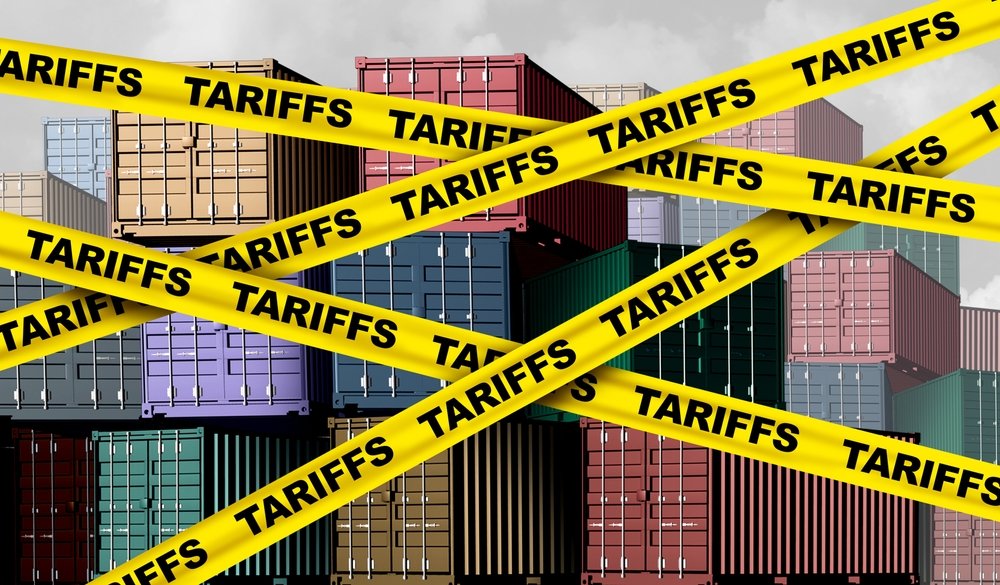While the markets are whipsawing in memecoin style since Donald Trump started his tariffs that were on and off against other countries, cannabis executives navigate the recent increase in U.S. levies – particularly those on Chinese goods.
The marijuana industry has reacted with less concern than the other industries, partly due to its domestic supply chain and previous experience during the COVID-19 Pandemic.
Still, that’s not to say the latest tariff against China – a major supplier of U.S. cannabis hardware – wouldn’t do damage to the marijuana trade. The future of the cannabis industry is still uncertain if this tariff can be changed at any time.
Tulare Transportation’s founder, Ari Raptis said that the greatest challenge for operators is uncertainty, as rising tariffs cause cost instability of imported essential items.
Raptis stated that “items such as vape cartridges and packaging, which are heavily dependent on manufacturing overseas, remain a major concern.” Raptis said that margins are thin, and they now have to absorb additional costs or pass them on without any lead time.
This company has seen partners struggle with late shipments, and unexpected price increases.
It is difficult for companies to switch to the U.S. quickly. This is not an easy situation to plug-and-play. “The domestic infrastructure needs to be built up for the compliance demands of cannabis.” he added.
The supply chain is divided on who should be responsible for these extra costs.
Raptis said that “someone must absorb the shock,” whether it is a new tariff, an increase in fuel prices, or delays to supply chains. Right now, pressure is being passed back and forth between manufacturers, importers, retailers, and distributors.
Anthony Coniglio CEO of NewLake Capital said that one potential upside is the fact cannabis stocks are already at a low price, which may make them somewhat immune to tariff worries. (OTCQX: NLCP).
He noted that “these stocks are priced to reflect price and margin compression far beyond the impact of tariffs.” Investors would adjust profit expectations, and hence price targets, in a “normalized” sector. Since cannabis is in an already oversold situation, this shouldn’t be a factor for cannabis.
The impact of marijuana businesses is also different for those that offer services rather than cannabis products.
Companies such as TILT Holdings Inc. (Cboe : CA:TILT) and TLLTF (OTCQB : TLLTF) which rely on hardware imported from China but not others have seen their stocks drop by 42% in a period of five days following Trump’s tariff announcements. By contrast, digital platforms like Weedmaps – with minimal foreign supply chain exposure – saw only a 3% decline in the same period.
Raptis, as well as Coniglio, cited COVID-19’s experiences by the industry to demonstrate its overall adaptability.
“During COVID these businesses were declared vital and the growth for this industry was rapid. “They had to survive the supply-chain disruption not just to stay in business but to grow,” Anthony stated.
Raptis acknowledged that industry resilience has increased due to the pandemic year.
Raptis noted that the need for fulfillment and shared warehouse solutions is increasing to avoid shipping delays. The sentiment is pragmatic but frustrating. “The industry has been working with headwinds for years and tariffs is just the latest.”
The tariff impact on cannabis cultivators may not be as significant as it is for other industries.
“On the cultivation and dispensary sides, it is much less. Call it 5% or 7% but their costs will increase. Anthony said that if they pass on some of the cost to their customers or consumers, you will only notice a small percentage impact.
As they are only just building out their facility, new operators, like those in Kentucky, could also face additional challenges.
Industry leaders prepare for the ongoing tensions in trade, but remain hopeful that things are not as bad as they first seemed.
Anthony stated that “we always have the attitude of preparing for the worst, and hoping for the best.” While I am confident that this dialogue will be successful, there are signs pointing to an extended tariff conflict with China.
Raptis rewards companies for prioritizing logistics.
He said that the next growth wave will be driven by companies who turn their logistics strengths into a strength, and not just an afterthought.




